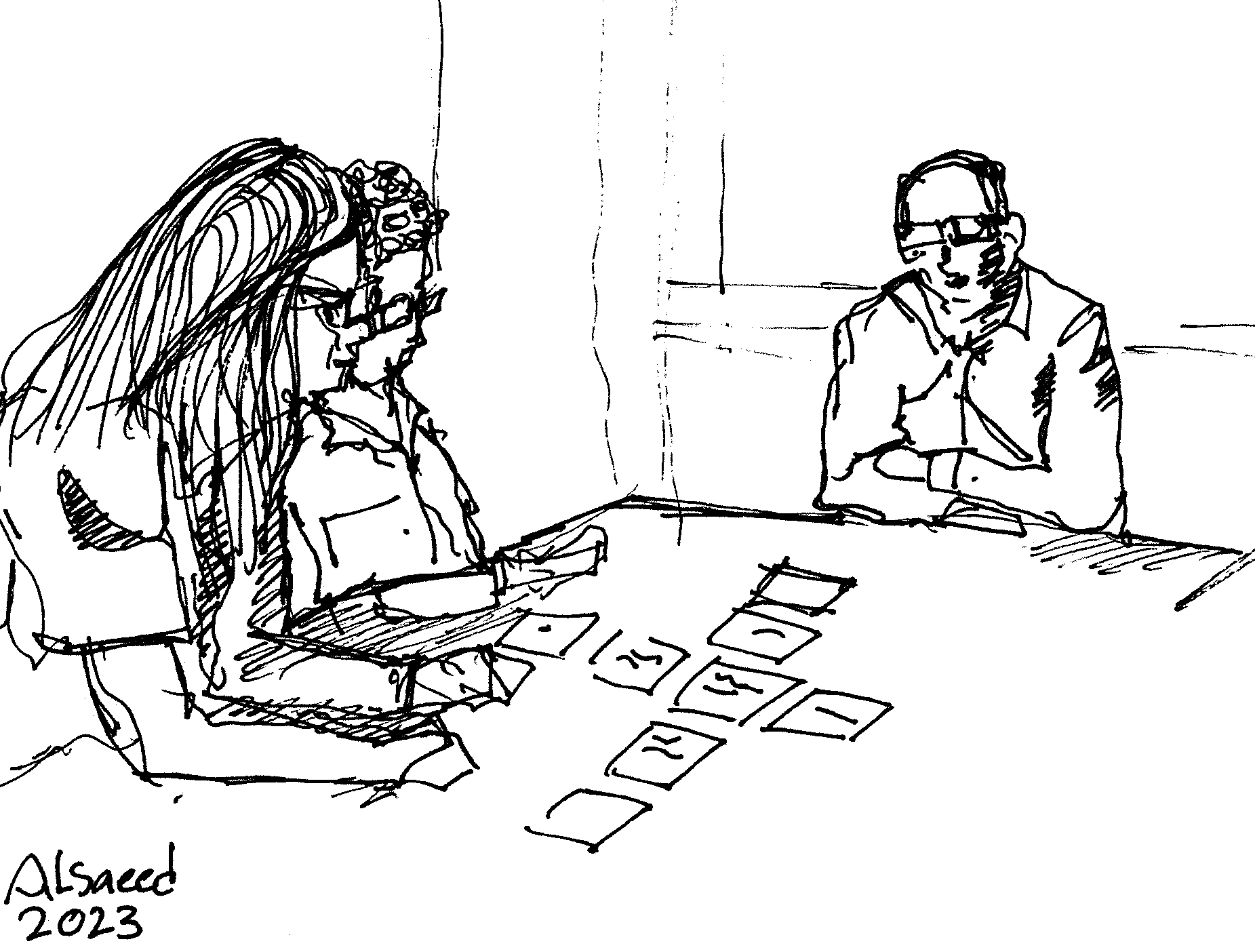Serious Games in Housing Research
Posted on 10-07-2023
A Reflection on the Reading Summer School
The Collins Dictionary explains that summer school is the conduct of comprehensive and intensive educational activities that rapidly raise participants' awareness or deepen their knowledge of various topics. And that is precisely what the Reading Summer School did. The summer(-ish) summer school was an excellent opportunity to review, discuss and address several important topics, including evidence-based housing, financing models for affordable housing and innovation in housing research. These topics align perfectly with the research projects of my fellow RE-DWELL(-ers). Chapeau! Dr Lorraine Farrelly and Leonardo Ricaurte for putting together such an intensive and comprehensive programme. Although, it is intriguing to write about all the activities of the Summer School. However, the focus of this blog is on the use of games in housing research as a decision-making support tool.
A serious game in research refers to the use of gaming principles and technologies to explore, analyse and address different aspects of topic-related issues. It involves developing and applying interactive and immersive game-like simulations or tools to explore, understand and potentially solve real-world challenges. From a housing perspective, games have gained popularity in recent years. The earliest example of their use can be traced back to the late 1990s when researchers at the University of Southern California used SimCity to study the relationship between land use regulations and housing affordability. By adjusting zoning regulations and development restrictions within the game, they could observe the impact on housing supply, housing prices and neighbourhood characteristics.
What was that game? And how does it work?
On the third day of the Reading Summer School, a serious game session was conducted - designed by Dr Alexandra Paio and Androniki Pappa. The theme of the game was "Building together RE-DWELL affordable and sustainable housing assessment framework ". However, the purpose of the game was to establish a transdisciplinary dialogue bringing together academic and industry views on the development and delivery of affordable and sustainable housing. At the same time, it aimed to help researchers identify and explore new links and connections between the identified challenges, the actors involved and the housing development processes from the three main themes of RE-DWELL (design, planning and building, community participation and policy and finance). It also highlights the differences between top-down and bottom-up approaches to decision-making that affect the outcomes.
Five teams were formed, each consisting of three researchers, one supervisor and two industry partners. Three types of cards were developed from individual projects. The red cards were derived from the research questions and were designed to review and explain the themes of each question and the research field behind it. The green cards, on the other hand, focused on the methods and tools that can be used to answer the identified research questions. The blue cards represent the impacts the research questions intend to achieve. Teams were asked to select a research question, then use the green cards to find answers to the questions, and finally connect the cards with an impact as the outcome. This puzzle-building technique perfectly stimulated discussion among the team members. At the end, dual connotations were derived from the game. First, the academic view focuses on the validity of the method and the structure of the research questions. Meanwhile, the industry partners and housing sector stakeholders focus on the simplicity, clarity and usability of the outcomes. Only by linking both perspectives can "good" results be achieved that address the challenges in housing.
Why is it important?
Unlike monofocused methods, serious games in housing research can serve multiple purposes, with data collection and analysis taking a central place. Researchers can design games that collect data from participants to gain insights into their housing preferences, behaviours and decision-making processes. These games can simulate scenarios related to housing affordability, location choice, energy efficiency, sustainable design and other relevant factors. The collected data can inform policy decisions, urban planning and housing interventions. Serious games can also be used to evaluate the impact of different housing policies or interventions. By creating virtual environments and scenarios, researchers can model the impact of policy changes on housing markets, affordability, social equity and sustainability.
From an engagement perspective, games can engage the public and raise awareness of housing issues. By developing interactive and accessible games, researchers can communicate complex concepts and challenges related to housing engagingly and understandably. This approach can facilitate community participation and promote informed discussions on housing issues. In line with engagement, games can be used as teaching tools for housing professionals, policymakers and students. They can simulate real-life situations and provide a risk-free environment for learning and practising skills related to housing design, urban planning, property management and housing policy development.
What is the next step?
Serious games in housing research offer a dynamic and interactive approach to exploring and addressing various housing-related topics. By combining the immersive nature of games with the complexity of housing problems, researchers can gain valuable insights and engage stakeholders in finding innovative solutions. The game played at the summer school was the first step in building the planned framework. Over the next few months, various adjustments will be made to overcome the initial challenges, and perhaps guidelines for using games in housing research will be established.


